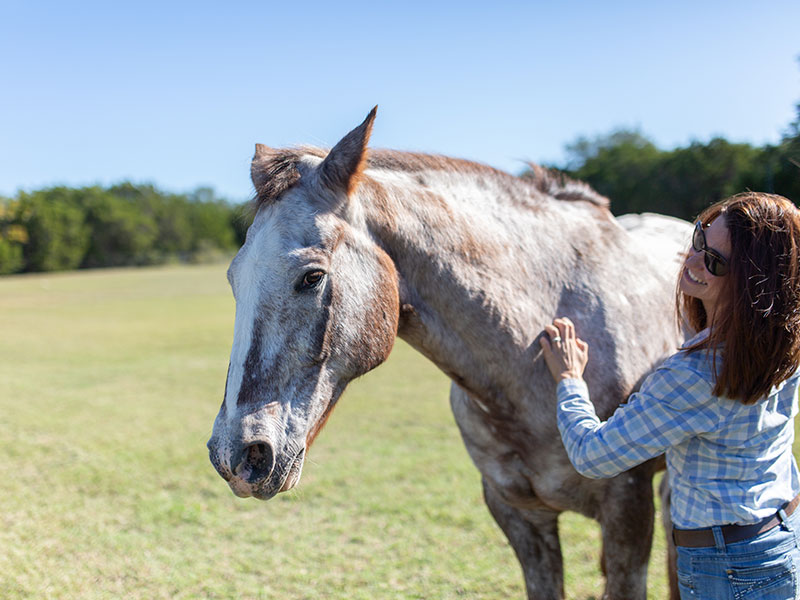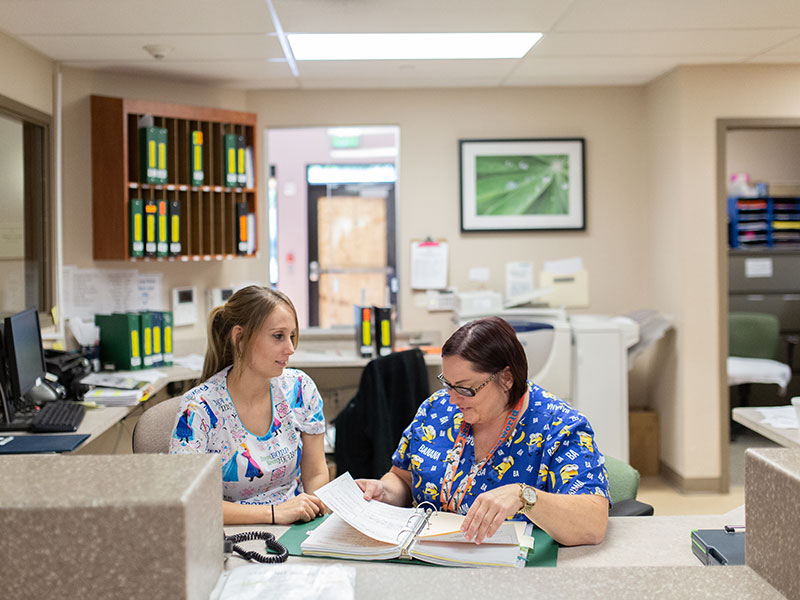Cedar Crest Hospital & Residential Treatment Center helps individuals who are struggling with OCD find long-term recovery. Located in Belton, TX, Cedar Crest is the leader in mental health care.
Understanding OCD
Learn about OCD
Obsessive compulsive disorder (OCD) is a neurologically-based disorder that affects men, women, older adults, and children alike. Most people on occasion have double and triple-checked things around the house, like checking to make sure the iron or oven has been turned off before leaving the house. However, someone with OCD feels the need to repeatedly check things or perform certain routines and rituals over and over before going about their day. Additionally, these people experience frequent upsetting thoughts (such as violent, pornographic images) called “obsessions,” which cause an overwhelming urge and compulsion to repeat certain behaviors, or “compulsions,” to attempt to control the obsessions and soothe the inner turmoil. Unfortunately, people with OCD are unable to control these obsessions and compulsions, no matter how illogical or bizarre they may be. In fact, most of the time, these obsessions and compulsions end up controlling the child, teen, adult, or older adult who is affected.
A person who has OCD may try and ignore their compulsions and obsessions. However, ignoring these impulses and obsessions only serves to increase the amount of stress and anxiety these people experience. The intrusive thoughts and compulsive behaviors consume most of a person’s time, often becoming a routine – progressing from several times a week, to several times a day, then several times an hour. Obsessive-compulsive disorder is a life-long mental disorder that can become so severe and time-consuming that it becomes disabling and causes tremendous suffering for children, teens, adults and older adults diagnosed with this disorder.
While most adults and older adults who have obsessive-compulsive disorder are able to recognize that these obsessions and compulsions don’t make sense, children with OCD may have no idea what is wrong. People with OCD often feel embarrassed and ashamed of their illness and go to great lengths to conceal their symptoms, hiding them from family and friends for years. While there is no cure, treatment for OCD can help to manage symptoms, allowing an individual to have a pleasant social life, raise a family, and be successful at work.
Statistics
OCD statistics
According to the World Health Organization (WHO), OCD is one of the top 20 causes of illness-related disability for individuals between the ages of 15 and 44 years of age worldwide. In the United States, it’s estimated that about 1 in 40 adults and 1 in 100 children have obsessive-compulsive disorder. While the typical age of onset for OCD is 19.5 years, this disorder can impact children, adolescents, and older adults as well.
Causes and Risk Factors
Causes and risk factors for OCD
While the exact causes for obsessive-compulsive disorder are unknown, current research has led to the development of a number of different hypotheses. Some of the most common theories for why a person may develop OCD include:
Genetic: Like other mental illnesses, obsessive-compulsive disorder has been known to run in families. While this disorder is likely passed down through genetics, specific genes responsible for OCD have yet to be identified. Having a parent or other family members with OCD can increase a person’s risk for developing obsessive-compulsive disorder.
Physical: Research has indicated that several parts of the brain are involved in fear and anxiety and when there are disruptions in these areas of the brain it may lead to the development of OCD. Additionally, it may be the result of changes in the body’s own natural chemistry or brain functions.
Environmental: OCD is occasionally triggered by stressful life events, especially if someone reacts strongly to a life event that triggers intrusive thoughts, emotional distress, and rituals characteristic of OCD.
Risk factors:
- Infections
- Trauma
- Male child
- Female adults
Signs and Symptoms
Signs and symptoms of OCD
Most individuals with obsessive-compulsive disorder have both obsessions and compulsions, however it is not uncommon for individuals to experience only one or the other. Symptoms of OCD usually begin gradually and will vary in severity throughout a person’s life, tending to be worse during times of higher stress. The symptoms for this disorder are broken down into two categories and are as follows:
Obsessive thoughts: These obsession symptoms typically intrude other thoughts when you’re trying to do or think about other things and may include:
- Fear of being contaminated by germs or dirt
- Intrusive sexually explicit or violent thoughts
- Fear of having a serious illness
- Fear of causing harm to yourself or others
- Excessive focus on religious or moral ideas
- Fear of losing or not having things you may need
- Needing order and symmetry
- Have superstitions
Compulsive behaviors: These compulsive symptoms are aimed to control the anxiety and stress about obsessive thoughts. These compulsions aren’t usually rationally connected to preventing the feared event.
- Excessive double and triple-checking of things
- Counting, tapping, repeating certain words, or other senseless acts to reduce anxiety
- Repeatedly checking in on loved ones to make sure they are okay
- Spend a lot of time cleaning or washing
- Ordering things “just so”
- Accumulating piles of useless junk
- Asking for reassurance
- Avoiding places or situations
- Checking doors repeatedly to ensure they are locked
- Checking stoves and outlets to ensure they’re off and things are unplugged
- Silently praying, saying a word, or phrase over and over
- Engaging in rituals triggered by religious fear
- Arranging books or other items to face a certain way
Other Symptoms:
- Depression
- Shame
- Guilt
- Anxiety
- Feelings of worthlessness
- Feelings of helplessness
- Feeling powerless over compulsions
- Shame about obsessions and compulsions
- Mood swings
Effects
Effects of OCD
The long term effects and consequences of untreated or undiagnosed obsessive-compulsive disorder can be devastating for the individual struggling with the disorder. These effects may include:
- Inability to work or attend school
- Lack of involvement in social activities
- Troubled relationships
- Overall poor quality of life
- Agoraphobia
- Anxiety disorders
- Depressive disorders
- Alcoholism
- Substance abuse
- Contact dermatitis from frequent handwashing
- Suicidal thoughts and behaviors
Co-Occurring Disorders
OCD and co-occurring disorders
It is not uncommon for someone with OCD to also struggle with another mental health illness. These may include:
- Post-traumatic stress disorder
- Substance abuse and addiction
- Other anxiety disorder
- Depressive disorders
- Bipolar disorder
- Eating disorders

















